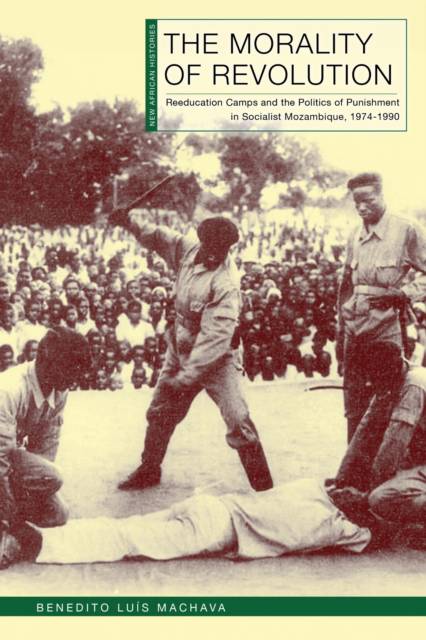
Bedankt voor het vertrouwen het afgelopen jaar! Om jou te bedanken bieden we GRATIS verzending (in België) aan op alles gedurende de hele maand januari.
- Afhalen na 1 uur in een winkel met voorraad
- In januari gratis thuislevering in België
- Ruim aanbod met 7 miljoen producten
Bedankt voor het vertrouwen het afgelopen jaar! Om jou te bedanken bieden we GRATIS verzending (in België) aan op alles gedurende de hele maand januari.
- Afhalen na 1 uur in een winkel met voorraad
- In januari gratis thuislevering in België
- Ruim aanbod met 7 miljoen producten
Zoeken
The Morality of Revolution
Reeducation Camps and the Politics of Punishment in Socialist Mozambique, 1968-1990
Benedito Luís Machava
€ 46,45
+ 92 punten
Omschrijving
The Morality of Revolution offers the first historical examination of urban cleanup campaigns and reeducation camps in socialist Mozambique. The book presents the camps as the template for independent Mozambique's punitive society under Frelimo. Individuals who transgressed the law and socialist normative codes of behavior were targeted by the revolutionary party, which obsessively pursued putative wrongdoers in an effort to build a new society from the ruins of Portuguese colonialism. Benedito Luís Machava argues that the socialist experiment, while ushering in an era of economic development and social progress, sought also to remake the moral fabric of Mozambican society. At play was the contradictory combination of high modernist, socialist aspirations and conservative anxieties rooted in a moralist reading of society. From its inception in 1974 to its demise in the late 1980s, the reeducation program was a do-it-yourself enterprise. The Frelimo government, unable to finance and support the carceral regime, expected its agents and the detainees to carry out the ambitious project on their own. Without material and human resources to run the program, state officials compelled detainees to build their own detention facilities; to grow their own food; to enforce their own political education; and in many ways, to oversee their own incarceration. The state's incapacity to translate the salvationist ideas of reeducation into planned action--a general feature of the socialist experiment in Mozambique--produced spaces of social neglect and castigation that negatively affected both the inmates and the personnel tasked with disciplining and reeducating them.
Specificaties
Betrokkenen
- Auteur(s):
- Uitgeverij:
Inhoud
- Aantal bladzijden:
- 344
- Taal:
- Engels
- Reeks:
Eigenschappen
- Productcode (EAN):
- 9780821425831
- Verschijningsdatum:
- 10/12/2024
- Uitvoering:
- Paperback
- Formaat:
- Trade paperback (VS)
- Afmetingen:
- 150 mm x 226 mm
- Gewicht:
- 453 g

Alleen bij Standaard Boekhandel
+ 92 punten op je klantenkaart van Standaard Boekhandel
Beoordelingen
We publiceren alleen reviews die voldoen aan de voorwaarden voor reviews. Bekijk onze voorwaarden voor reviews.









